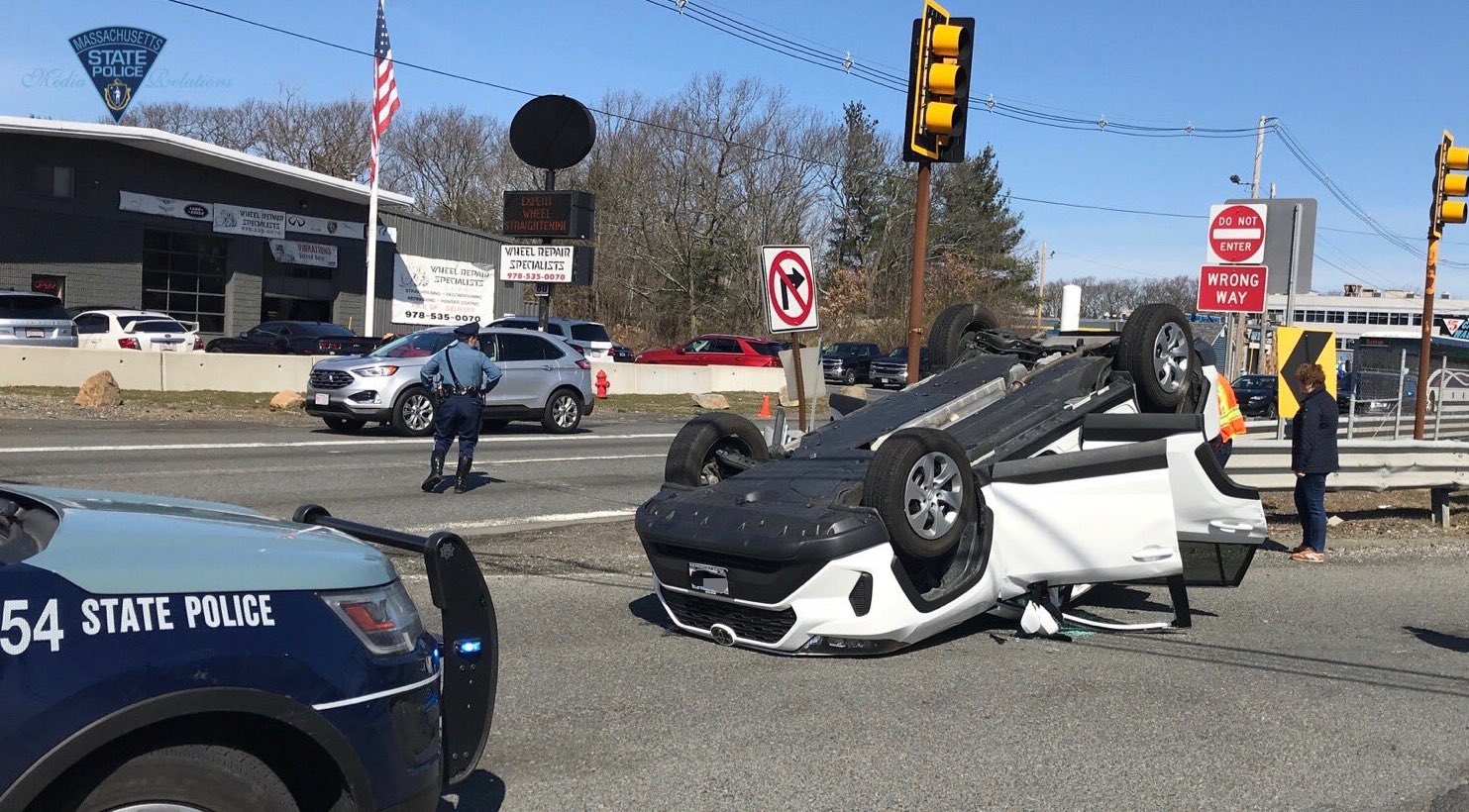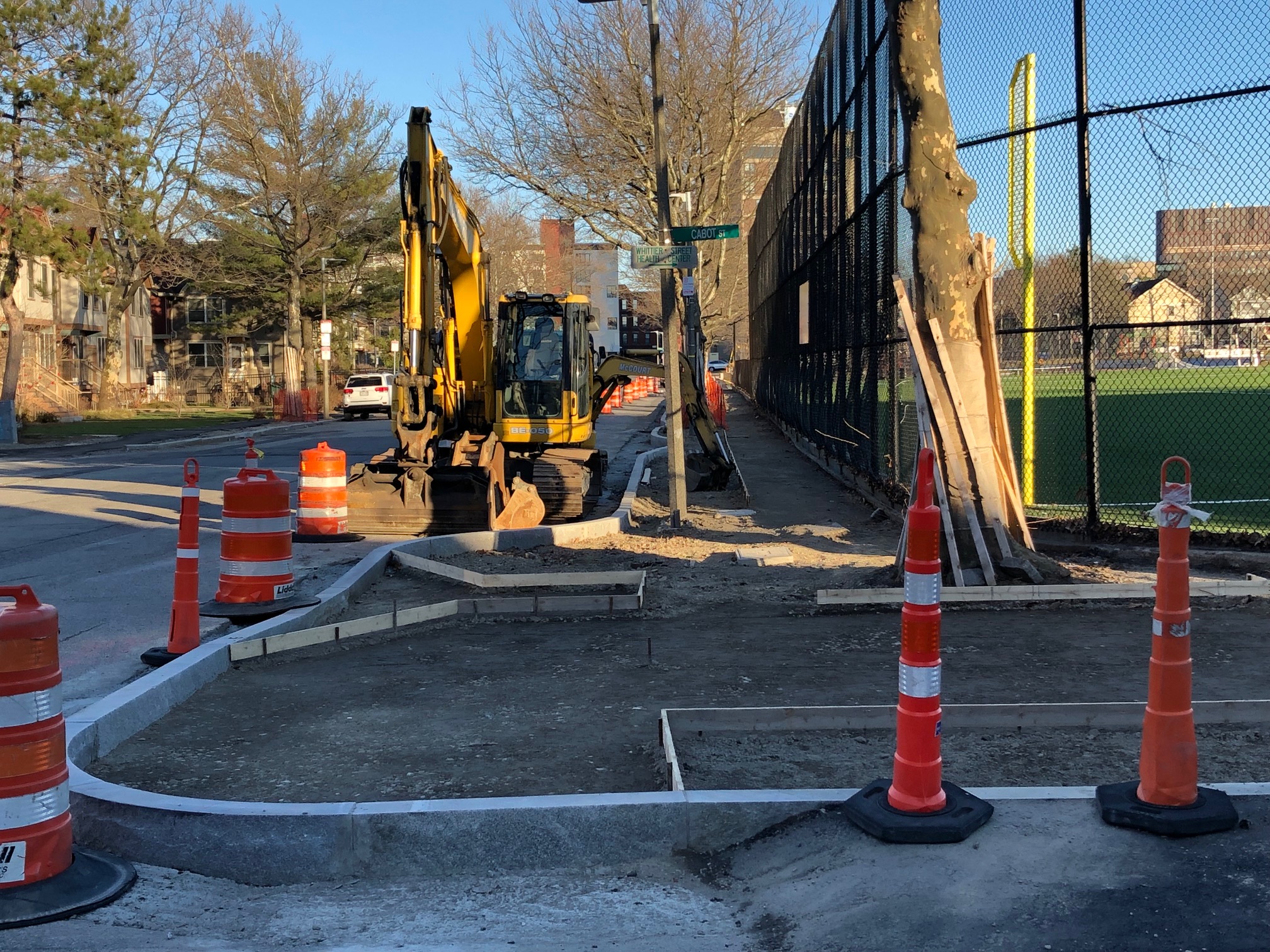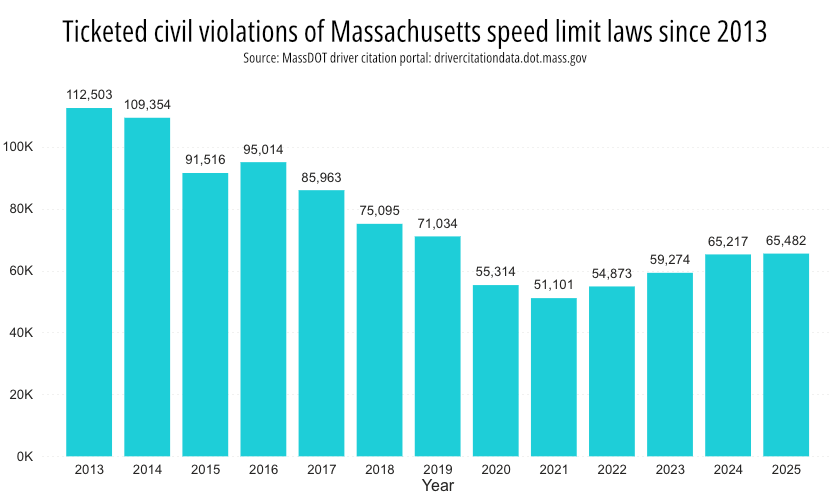The City of Boston has achieved "consistent and measurable progress" towards its goal of eliminating serious and fatal crashes in the city, but needs to work harder to reduce the overall number of deadly cars and trucks on city streets, according to a new progress report from the Massachusetts Vision Zero Coalition.
In 2015, the City of Boston adopted a "Vision Zero" policy, setting a goal to eliminate serious and fatal crashes on city streets by 2030.
As part of that effort, the city adopted a citywide 25 mph speed limit in 2017, and has also implemented targeted safety improvements for some of the city's most dangerous streets and intersections.
For the past decade, the number of fatal crashes that have killed bike riders or pedestrians in the rest of the country has been increasing, as have the total number of injuries from crashes.
But the most recent crash data from 2020 suggests that Boston's efforts have helped the city buck those trends:
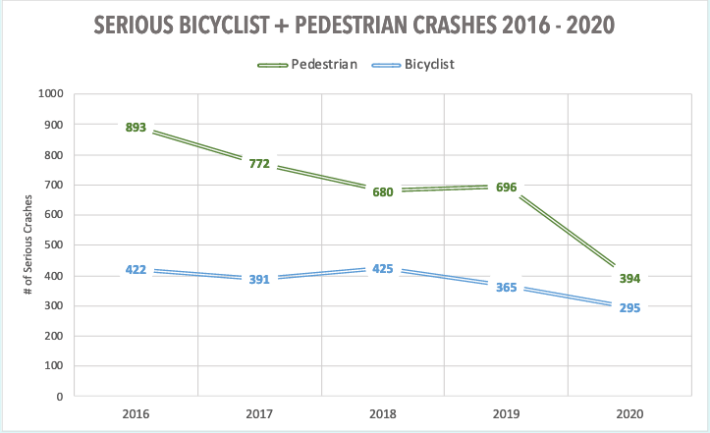
The pandemic likely played a role in these results. For most of 2020, city-dwellers were staying home as much as possible: there were fewer dangerous vehicles on the streets, and reckless drivers had fewer potential victims to crash into.
However, in spite of the lockdown, the number of roadway killings involving people in cars, trucks, or motorcycles in the City of Boston more than doubled in 2020:
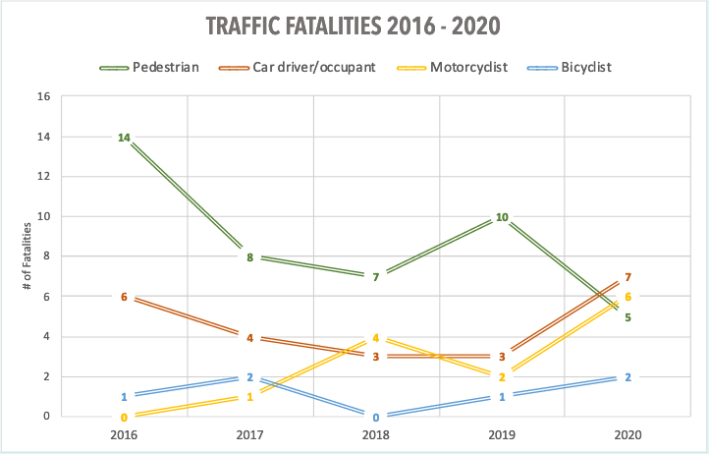
Local victims of traffic violence included
The Vision Zero Coalition speculates that these deaths were "likely a result of an increase in speeding" enabled by empty roadways.
"With fewer people on the roads in 2020, some people took that as a cue that they could drive faster - with deadly consequences," said Stacey Beuttell, WalkBoston's executive director, in a press release accompanying the new progress report.
The progress report encourages Boston officials to update the city's Vision Zero Action Plan, which hasn't been revisted since 2018, and to focus more effort on reducing the risk of crashes by reducing motor vehicle use in general (which also aligns with the city's climate strategies).
The Massachusetts Vision Zero Coalition is an organization of nonprofits, businesses, civic groups, and individuals from across the state that advocate for Vision Zero policies (disclosure: three of the Coalition's lead organizations, the the LivableStreets Alliance, WalkBoston, and Boston Cyclists Union, have leadership staff who also serve on the StreetsblogMASS board of directors).
